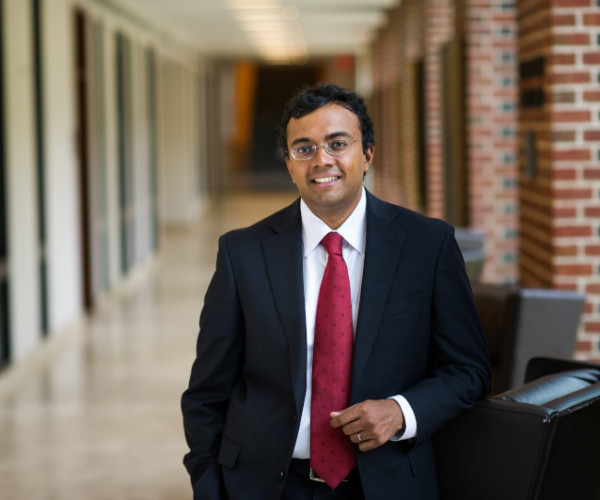Prof. Balganesh argues against Ninth Circuit’s ‘nutty’ rule prohibiting use of technical experts in software copyright cases
In an article forthcoming in the Berkeley Technology Law Journal, University of Pennsylvania Carey Law School Professor of Law Shyamkrishna Balganesh contends that courts should allow technical experts to testify in software copyright cases so that lay judges and juries can better understand the meaning of computer languages and computer codes.
In “The Use of Technical Experts in Software Copyright Cases: Rectifying the Ninth Circuit’s ‘Nutty’ Rule,” Balganesh and co-author Peter Menell, Koret Professor of Law at Berkeley Law and Director of the Berkeley Center for Law & Technology, write that the Ninth Circuit’s recent decision in Antonick v. Electronic Arts was a “shocking departure from the decisions of every other circuit that has confronted software copyright infringement litigation.” The authors note that the court reaffirmed a bar on expert testimony in copyright disputes established by Krofft Television Prods., Inc. v. McDonald’s Corp. – a case that is more than 40 years old, before highly technological computer software code became a frequent litigation subject.
In Antonick, the authors write, the court held “that lay juries must decipher and analyze software code – distinct hexadecimal assembly code languages for different processors – without the assistance of expert witnesses, a rule that the authoring judge characterized at the oral argument as ‘nutty.’” Balganesh and Menell contend that the ruling ignores “the key distinction between the use of technical experts to analyze substantial similarity as opposed to enabling lay judges and jurors to perceive the underlying works.”
The authors drew a non-technical copyright comparison to illustrate their point.
“Just as it would be absurd to ask a lay jury with no familiarity with Kanji characters to assess whether a translation of Harry Potter and the Philosopher’s Stone into Japanese infringed on the English original without the aid of a bilingual translator, it makes no sense to ask a non-technical jury to compare computer source codes written in different assembly languages to determine substantial similarity without expert assistance.”
A member of the Law School faculty since 2009, Balganesh focuses his scholarship on understanding how intellectual property law and innovation policy can benefit from the use of ideas, concepts, and structures from different areas of the common law, especially private law. His most recent work examines the intellectual history of U.S. copyright law, showing how it evolved from a private law regime to a public law based system.
While at Yale Law School, he was an Articles & Essays Editor of the Yale Law Journal and a Student Fellow at the Information Society Project (ISP). Prior to that he spent two years as a Rhodes Scholar at Balliol College, Oxford.
Balganesh was elected to the American Law Institute (ALI) in 2017.
Read more Law School faculty papers and publications.





